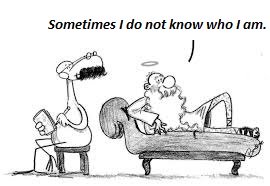
Arquivo para October 20th, 2015
We were not or want to be modern?
The book We have never been modern by Bruno Latour is divided into five chapters, namely: Crisis,  Constitution, Revolution, Relativism and redistribution.
Constitution, Revolution, Relativism and redistribution.
Latour put in suspension the concept of modernity and says not only that it is ambiguous, but one should think that she got off the ground and speeches, despite being a period where the order is highly desired, due to lack of a project “unique” it causes hybridization of things and subjectsIt’s what Bauman, in his book Modernity and Ambivalence wanted to analyze, but in which she claims that modernity is more than what is-not and never has been, for it is liquid.Unlike Bauman will examine the roots of our thinking “modern”, where their groupings, and concept will be analyzed from scientists Boyle and Hobbes.
Boyle at a time when a dozen civil wars are triggered choose a method of argument, the opinion, derided by most antiquated scholastic tradition.
Since Hobbes discredits the whole Boyle device and says that there is only one knowledge, one only power if you want to put an end to civil wars, is the famous Hommo homini lupus (man is a wolf to man) from where its the came book Leviathan and where part of the whole contractarian tradition.Latour in his third chapter deals with the Revolution, we are in a final season, even though modernity has never fulfilled its role, the order, or “human pacification”, what Peter Sloterdijk says in his book “Rules for the human Park“, it project that failed.
Claims of revolutionary projects are having tried to go one last time the circle of pre-modern, encompassing all divine, natural and social beings, Marx argued that own in German Ideology, in order to avoid the contradiction of Kantianism between the role of purification and mediation.Latour explains that separated two dimensions (he says qualities) pure ontological, is the spirit a more subjective version, either of matter at its most objective version, ie separate things of the subjects gave what gave: Being Division .
Postmoderns believe that because modern are still accept the full division between the material and the technical world on one side, the language sets of the speakers of another subject.
Things like technology are part of human life, separating them is an onset schizophrenia, fragmenting be putting the “spiritual” life away from the concrete and human.
Latour, Bruno (1993). We have never been modern. Harvard University Press.

